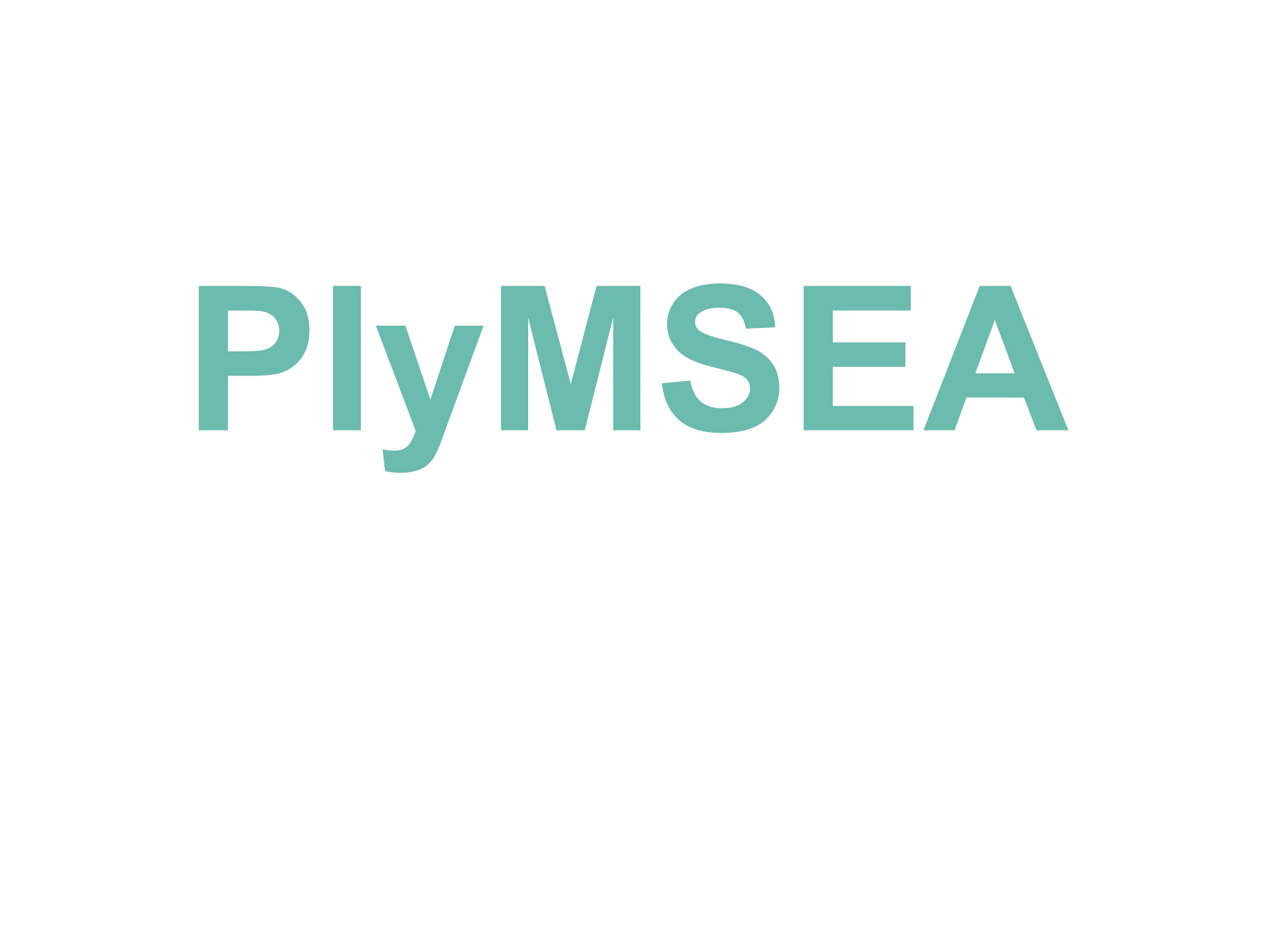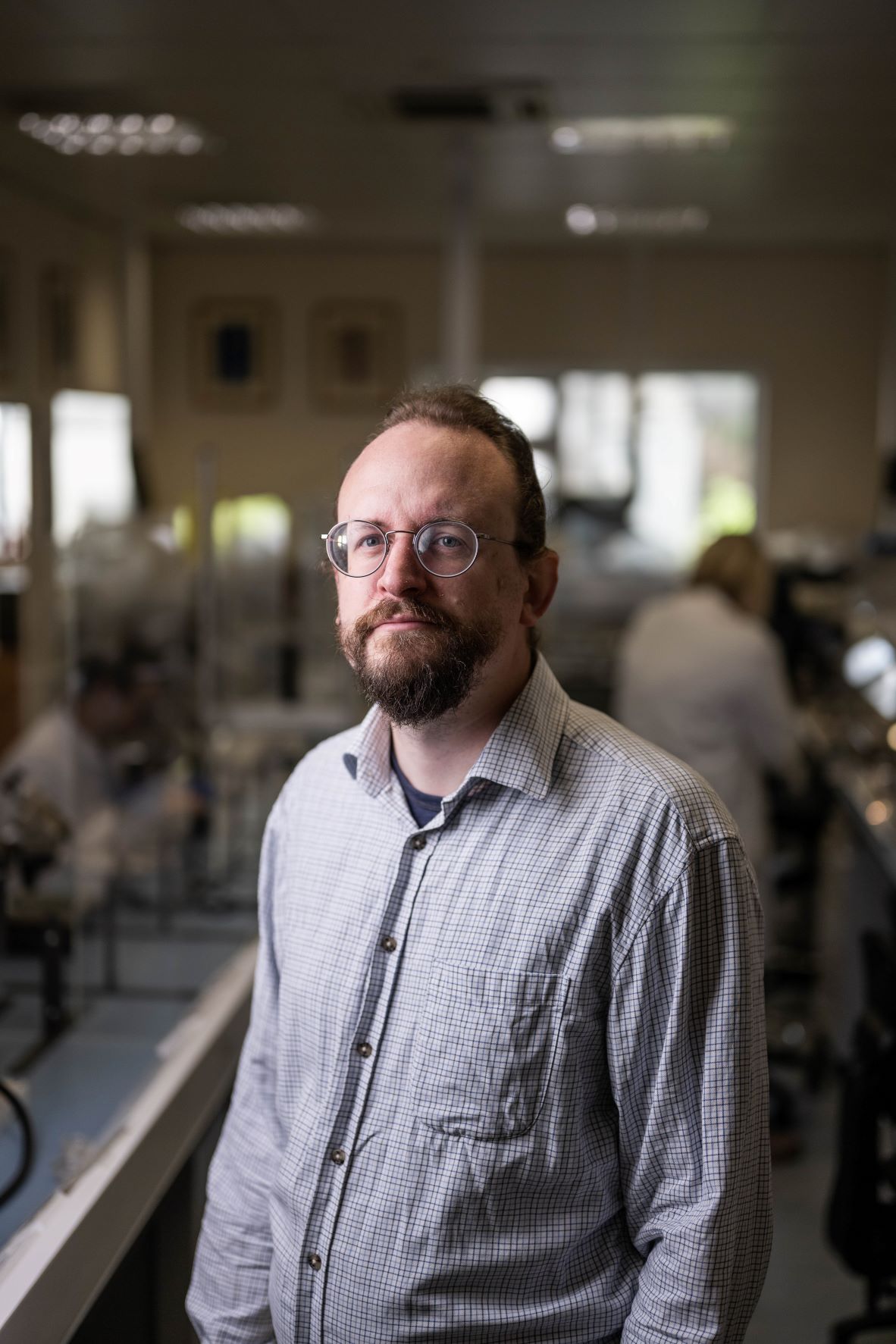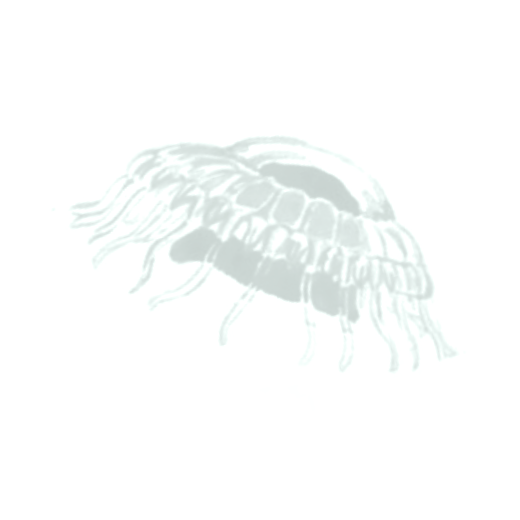Ocean Biology
Ocean Biology
Our ocean is a huge heat sink and absorbs atmospheric carbon dioxide. The ocean plays a central role in mitigating climate change. Researchers from the Marine Biological Association focus on the impact this has on ocean biology, from plankton to sharks. Our research on spatial dynamics of marine life, environmental changes and human impacts provides scientific evidence that can improve our understanding of the marine food web and environment; and help the effective management of the ocean.
Movement Ecology and Conservation of Ocean Predators – Sims Lab
Tracking the movements and behaviour of ocean predators to understand responses to changing environments and human threats
Research Lead – Professor David Sims
We track individual free-ranging sharks and other top predators using advanced telemetry and bio-logging techniques integrated with environmental data to develop models and simulations for understanding movement patterns, behavioural strategies and drivers of distributions. Understanding the complexities of shark movements and distributions with respect to changing environment and anthropogenic threats is crucial for improving conservation.
Global Shark Movement Project bringing together 40 shark research teams spread across more than 100 institutes in 26 countries.
OCEAN DEOXYFISH project funded by a European Research Council (ERC) Advanced Grant. Read more about the project here and watch a video here.
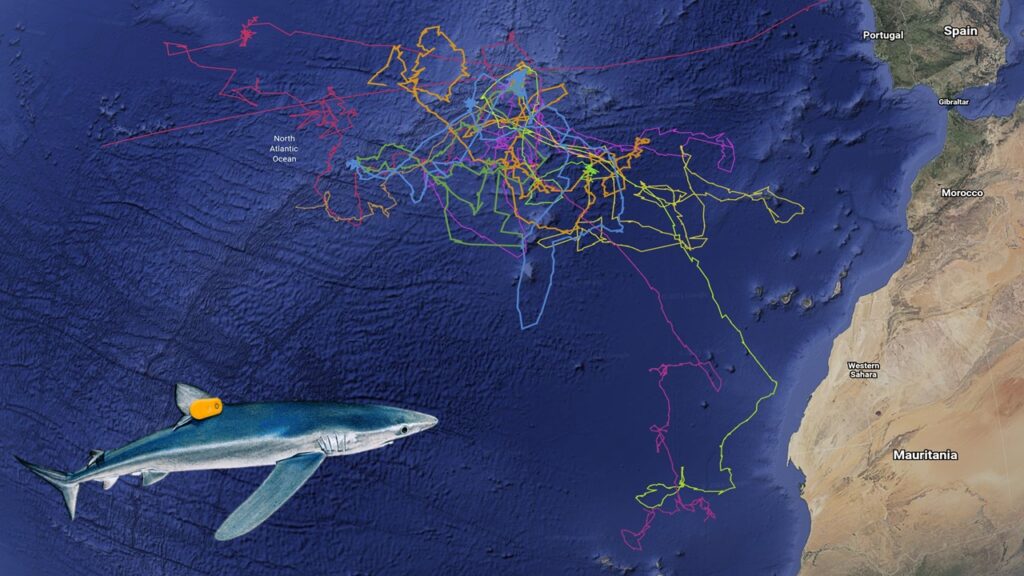
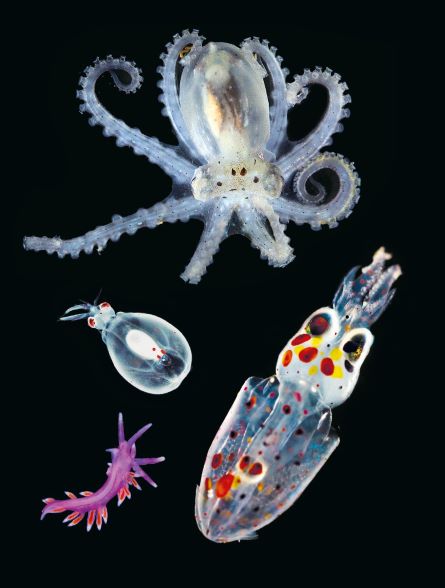
Continuous Plankton Recorder Survey – Johns
Long-term large-scale plankton monitoring programme tracking impacts of environmental change on ocean health.
Research Lead – David Johns
The CPR Survey is a global leader in assessing the impacts of environmental change on our oceans. Using a mechanical sampling device, a Continuous Plankton Recorder, monthly plankton samples have been collected across vast swathes of ocean since 1931.
The Survey has operated in every ocean, covering more than 7 million nautical miles, and in 2021 was awarded a Guinness World Record for the greatest distance sampled by a monitoring programme. CPR data are freely available, driving better understanding of themes including climate change, human health, fisheries, biodiversity, invasive species and ocean acidification, and better management of the marine environment.
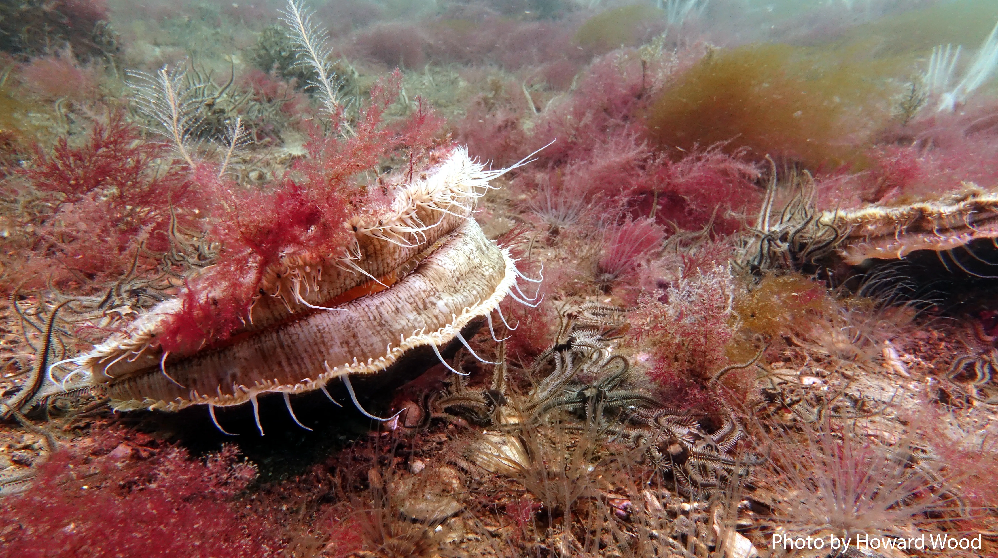
Fisheries and Conservation – Stewart
Balancing the needs of fisheries with the need for marine conservation.
Research Lead – Dr Bryce Stewart
Fisheries provide crucial protein and nutrition to billions of people around the world, and this demand continues to grow. However, more than a third of fish populations are now overfished, and certain fishing methods have high bycatch and can cause long-lasting damage to marine habitats.
This research ranges from pure biological studies such as on the age and growth of fish, to assessing the effects of marine protected areas on marine ecosystems, to developing and providing fisheries management advice to decision makers.
Ocean Biology Research Fellows

David Johns
Director of the Continuous Plankton Recorder Survey, Chair NMBAQC
David Johns
Director of the Continuous Plankton Recorder Survey, Chair NMBAQC
Growing up in the South West UK, I have always been interested in marine life, and could usually be found when young, either rock pooling, fishing or foraging. I started work with the CPR Survey in 1997, initially as a plankton analyst, and built on my taxonomic knowledge to investigate changes in the plankton community throughout the North Atlantic. Now I am lucky enough to be the Director of the CPR Survey, the fact it has been running since 1931 makes it more of a current custodian role! My recent work has focussed on applying plankton data to the question of marine ecosystem health, and how we can monitor the key trophic layers which all marine life is ultimately dependent upon. I still occasionally look down the microscope, curiosity at looking at microscopic life has never left me – seeing a good example of something quite common can be as exciting as an exotic specimen – I am fascinated with all aspects of natural history. Externally I chair the NMBAQC committee, promoting best practice in marine biological monitoring, making sure data collected are as robust and reliable as possible.
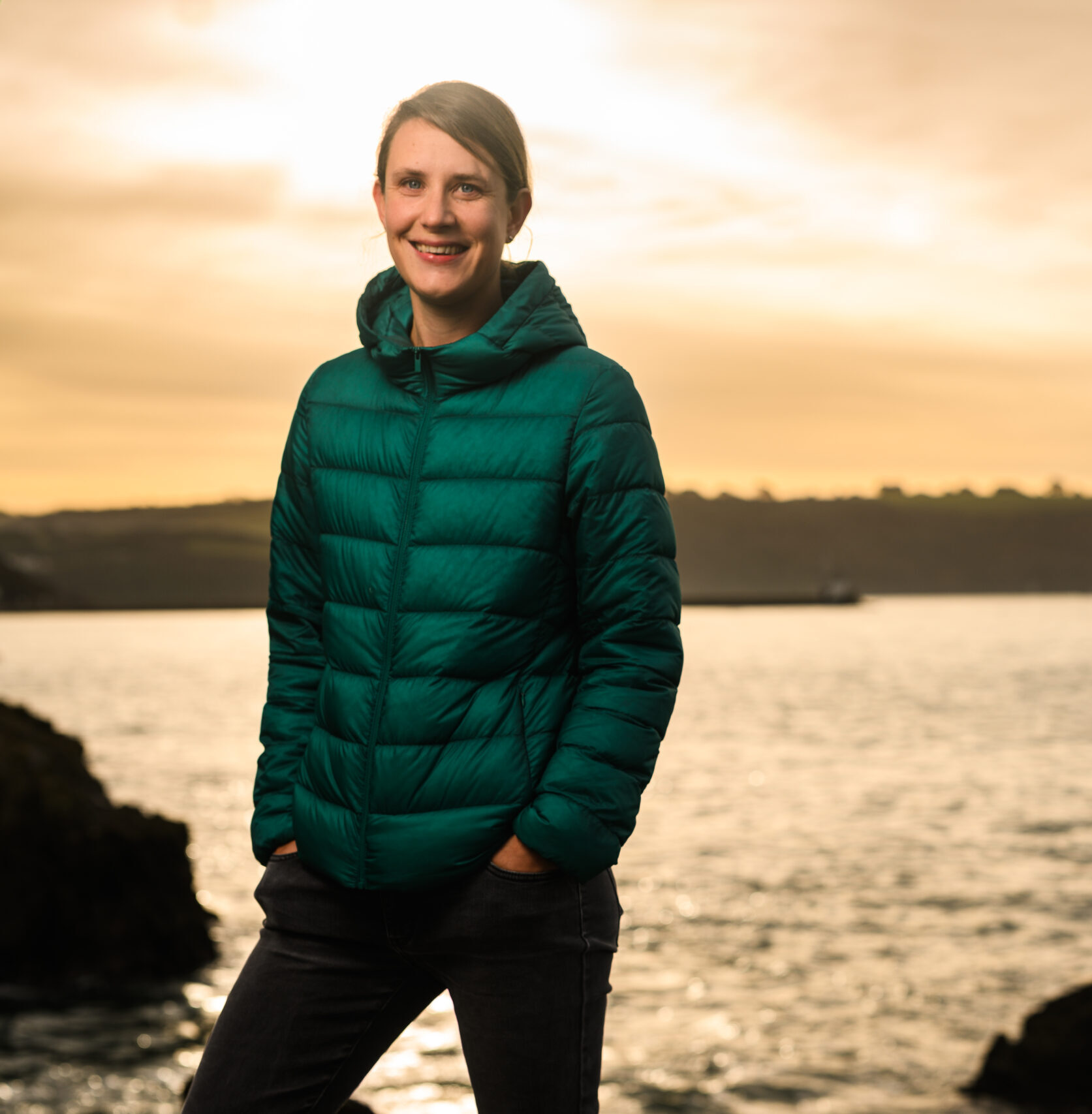
Dr Clare Ostle
CPR Research Fellow, Coordinator Pacific CPR Survey
Dr Clare Ostle
CPR Research Fellow, Coordinator Pacific CPR Survey

claost@mba.ac.uk
I am a marine biogeochemist and the co-ordinator of the Pacific Continuous Plankton Recorder (CPR) Survey. My research covers a range of topics from the marine carbonate system to ocean plastics. I have worked closely with the CPR dataset since my undergraduate project at Swansea University where I analysed changes in copepod abundance and distribution across the North Atlantic. My PhD was based at the University of East Anglia where I investigated how the activity and abundance of plankton may influence the variability of carbon dioxide flux in the North Atlantic. This work led to the development of a method for estimating Net Community Production (NCP) using volunteer ships of opportunity and oxygen optodes and piqued my interest in instrument development and sampling enhancements for the CPR. I have been involved in numerous syntheses reports and working groups, covering topics such as the operationalization of ecological indicators for European marine policy, ocean warming, and ocean acidification. I am an active member in the UK Pelagic Habitat Expert Group, the Global Ocean Acidification Observing Network (GOA-ON), Gulf Watch Alaska and The North Pacific Marine Science Organization (PICES).
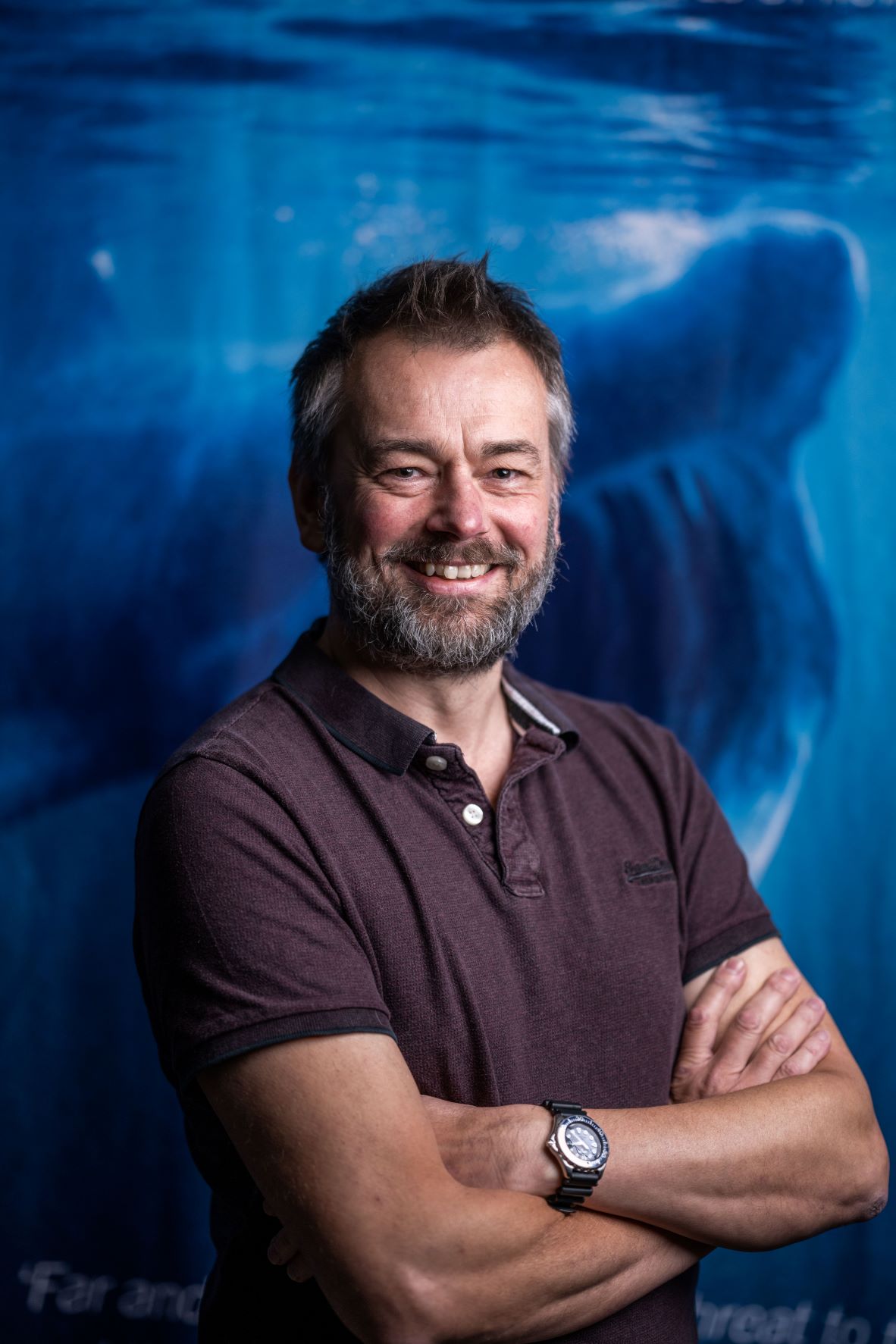
Professor David Sims, PhD DSc, MAE
Senior Research Fellow
Professor David Sims, PhD DSc, MAE
Senior Research Fellow
I have a lifelong interest in the behaviour, ecology and conservation of ocean predators. My research career began in 1991 with studies on the ecophysiology of feeding in small-spotted catsharks, completed in part at the Marine Biological Association. I embarked in 1995 on what has become a 25 year study of basking shark behavioural ecology. In 2001, shortly after joining the MBA as Research Fellow, we obtained the first long-term satellite trackings of basking sharks showing that they do not hibernate in winter, exhibit regional annual site fidelity, and cross national boundaries frequently, results which contributed to their international protection under CITES (2003) and CMS (2006) listings. Since 2001 I have studied the movement ecology of oceanic sharks and other threatened fish in relation to climate change and fishing. In 2016 I initiated the Global Shark Movement Project, a collaboration of over 150 scientists across 26 countries, aimed at tracking movements and changing habitats of pelagic sharks and quantifying the threats they face. We revealed where large spatial overlaps between sharks and longline fisheries and shipping occurred, demonstrating how threatened populations are most impacted. Awards for our research include the FSBI Medal (2007) and the Marsh Award for Marine Conservation (2019).
Research Group: Ocean Predator Movement Ecology and Conservation
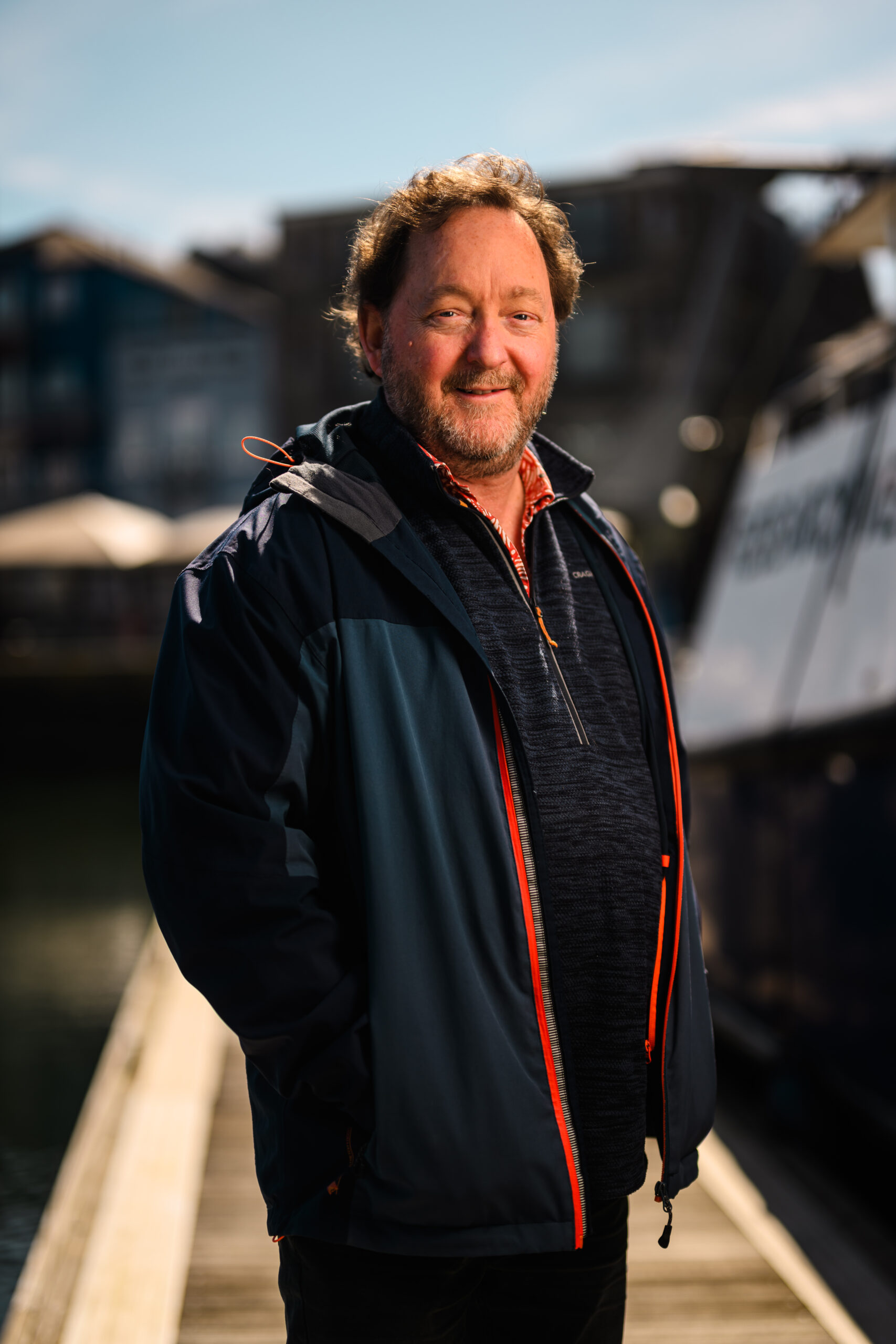
Dr Bryce Stewart BSc (Hons), PhD
Senior Research Fellow
Dr Bryce Stewart BSc (Hons), PhD
Senior Research Fellow
My upbringing in Australia and Papua New Guinea inspired a deep fascination and love of the ocean. Since then, I have developed a career as a marine ecologist and fisheries biologist whose work has ranged from temperate estuaries to tropical coral reefs and the deep-sea. I gained a BSc (Hons) in Zoology from the University of Melbourne, and a PhD in Marine Biology from James Cook University, before moving to the UK in 1999. The central driver of my research has been to gain an increased understanding of marine species and ecosystems to help balance the provision of ecosystem services (particularly fisheries) with conservation. My specialities include the provision of evidence to improve fisheries management and policy and examining the utility of Marine Protected Areas for enhancing both conservation and fisheries. I work with a broad range of stakeholders including commercial and recreational fishermen, conservationists, and the seafood industry and I am passionate about communicating the findings of my research to the broadest possible audiences. I joined the MBA from the University of York in 2024.
Research Group: Fisheries and Conservation


